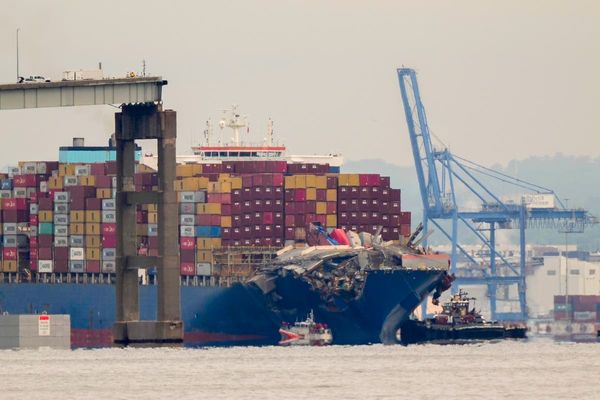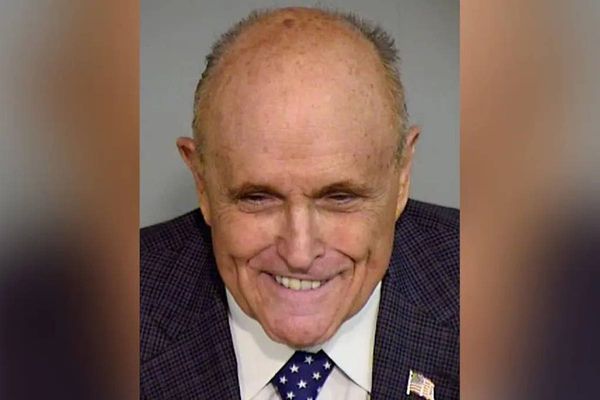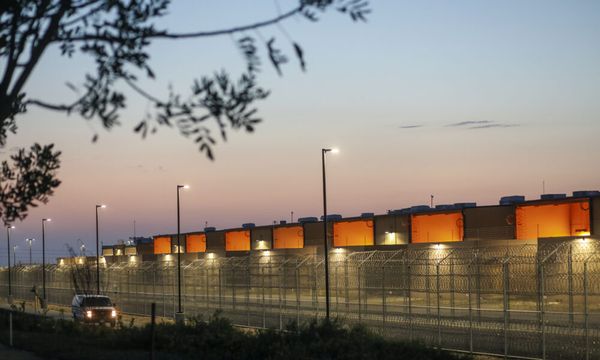
Current favourite from Philippines would represent changing demographic of the Church
The struggle for control of the Catholic Church is intensifying behind the scenes, as potential successors to Pope Francis begin manoeuvring into position amid talk he could soon step down.
- SEE MORE Is the Vatican facing a cash crisis?
- SEE MORE Will Pope Francis resign?
- SEE MORE Pope Benedict XVI - a life in pictures
Francis marked the tenth anniversary of his election as Pontiff in March, “having outlasted the conservative opposition that failed to bring him down and which is now at a crossroads, seeking new direction following the deaths of two of its figureheads”, reported Reuters.
The death of former Pope Benedict XVI in December followed by the sudden death of Australian Cardinal George Pell a month later, has left the conservative wing of the church without its two most influential voices just as talk of the succession ramps up.
Why now?
Benedict’s death “could deepen divisions at the top of the Catholic Church by both removing a brake from Pope Francis and emboldening his conservative critics to try to succeed him”, said The Times.
It “could also clear the way for Francis to resign” after his predecessor’s “momentous decision to step down broke a taboo that had lasted for six centuries”.
At 86, “Francis himself is already physically frail”, said The Guardian. “He lost part of a lung when young, had bowel surgery in 2021 and since May has used a wheelchair in public”, the paper added. Francis recently quipped that a wheelchair was not an issue for a pope – “one governs with the head, not the knee” – but “also revealed that he had a signed resignation letter, deposited with the Vatican’s secretary of state, that could be accepted if he became incapacitated”, said the newspaper.
While some, such as Robert Mickens, editor-in-chief of Catholic newspaper La Croix International, said he expected Francis to resign as early as this year, most Vatican watchers do not believe his retirement is imminent, even if “there are some in the Roman Catholic church who would dearly love another pope to be elected very soon,” said The Guardian.
Who is in the running?
“Whoever the next Pope is will say a great deal about the direction of a Church being pulled in different directions and threatened by schism”, said the Catholic Herald.
The paper suggested it could come down to a straight fight between Hungary’s Cardinal Peter Erdő, “a conservative canon law expert coming from a country on the frontline of the European culture war” whose “appointment would send a powerful message about the direction the Church would be taking” and “a Pope from the developing world – such as the Philippines’ Cardinal Luis Antonio Tagle – who would be hailed by liberals, given the changing demographic of the Church”.
The latest odds from bookmakers OLBG have Cardinal Tagle as favourite to succeed Francis on 7/1, along with Canada’s Cardinal Marc Ouellet, with Cardinal Erdő just behind on 8/1.
Such a contest “would show a Church at a crossroads”, said the Catholic Herald, between “the forces of traditionalism in Europe – the original heart of Catholicism – and the changing face of the faith, focused more in the developing world, yet still largely conservative in outlook, not least on LGBT issues”. If symbolism matters, then Erdő vs. Tagle would be a contest “not just of ideas but of perception and identity”, added the paper.
“As the conversation stands today, perhaps the hardest question to answer is who the ‘opposition’ candidates are,” said Crux Now, an off-shoot of The Boston Globe focusing on the Vatican and Catholic Church.
“We know there’s a conservative wing of the Catholic Church disenchanted with some aspects of the Pope Francis agenda,” it added. More up in the air is who the “discontinuity voters might rally around, since most of the identifiable conservatives among the current crop of cardinals are either considered too extreme, or simply lacking the proper gravitas, to be pope”, said the paper.
How does the process work?
“While the conservatives look for a new standard-bearer to form a consensus ahead of the election of the next pope, Francis is forging ahead with his vision of a more inclusive and forward-looking Church,” said Reuters.
Crucially, of the 132 cardinals aged under 80 who would be eligible to vote in a conclave to elect a new pope, 83 were appointed by Francis. Furthermore, about a dozen, mainly senior conservative cardinals, will also lose the right to vote this year.
In a sign of the growing influence Francis has on the make-up of the body who chooses his successor, bookmakers forecast a high probability the next pope will assume his papal name, as Francis II.
“If Francis’s health holds out, even for a few more years, he can appoint more electors, increasing the chances his successor will be someone who agrees with his vision,” said Reuters.
Traditionalists may worry about “whether Pope Francis has changed the complexion of the College of Cardinals sufficiently to elect a clone”, said Dr Jeff Mirus on the conservative Catholic Culture website. “But on that score, at least, you needn’t worry. Papal elections have never been predictable in the same way that political elections are.”







